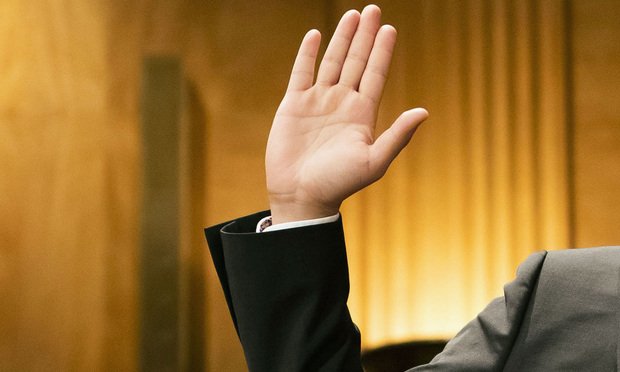Register of lawyers able to affirm oath
The Register of Lawyers able to affirm oath by a third party – A real change to the status quo?
Dr. Marina Himoni
The Oaths (Amending) Law of 2021 has been published in the Official Gazette of the Republic on 26th of February 2021. With the provisions of the new Law (14(I)/2021) and in particular Section 3(iv), lawyers, who will have enrolled in a special register maintained by the Supreme Court, will be able to affirm oath in cases in which they do not have interest or any relation. With this new development provided under the Oaths Law 2021, it will now be possible to make an affidavit or take an oath before lawyers without the need to attend the Court and do so before the Registrar.
Section 2 of the new Law contains the relevant definitions, including amongst others the definition of “lawyer” who is defined as a person registered in the Register of Lawyers practicing Law in accordance with the Advocates Law (CAP.2), the definition of “the register of lawyers able to affirm oath” which is defined as the register that the Chief Registrar will maintain in accordance with the provisions of Section 3(iv) of the same Law.
In accordance with the provisions of Section 3(iv) of the new Law, lawyers who practice law for at least five consecutive years will able to enrol in a register of lawyers able to affirm oath by sending their request accompanied with the required certificates via email to the Supreme Court. It should nonetheless be emphasized that lawyers can affirm oaths made before them subject to the condition set under Section 3(iv), in particular a lawyer or any other lawyer from the same law firm cannot accept the taking of an oath or the making of an affidavit or the constitution of such document before the if their law firm represents the person that purports to take the oath or any other person which is part of the proceedings or relates to the proceeding or the matter with regards to which the oath is taken or if the lawyer has an interest in the case or a kinship up to third degree with any of the above persons.
More importantly, it should not be neglected that Section 3A, renders it an criminal offence for a lawyer who in affirming an oath before him: a) certifies falsely that he has the person taking the oath before him, ii)does not carry out the required checks to establish the identity of the person taking the oath, iii)fails to comply with the provisions of Section 3 (iv) as provided above. A lawyer who is found guilty for any of the above is convicted for a criminal offence and faces imprisonment of up to two (2) years or a fine not exceeding five thousand (€5000) euro or both.
Despite the condition contained in Section 3(iv), it cannot be disregarded nor denied that the above constitutes a new important development in the legal world. Legal firms can choose to provide the service to their fellows and at the same time benefit by receiving the service from fellow firms which can prove particularly valuable in cases where there is an urgent need for a client to make an oath without having to attend the Court, especially when such needs arise at out of Court working hours.
The purpose behind the new Law is to effect the decongestion of Courts by reducing the flow of citizens who attend the Court for the purposes of taking an oath with regards to out of Court matters. At the same time, the new development seeks to save time for the Courts’ staff by reducing in this way their workload.
All in all, amidst the current pandemic, we should not disregard the fact that the new development will at the same time aid in reducing the flow of people attending the Court which has proved particularly important for the safety of everyone.
For further information on this topic please contact Dr. Marina Himoni at P. N. KOURTELLOS & ASSOCIATES LLC, by telephone: +357 25 745575 or by fax: +357 25 755525 or by e-mail: mh@kourtelaw.com
Disclaimer
This publication has been prepared only as a general guide and for information purposes. It does not constitute or should not be read as a legal advice. One must not rely on it without receiving independent advice based on the particular facts of his/her own case. No responsibility can be accepted by the authors or the publishers for any loss occasioned by acting or refraining from acting on the basis of this publication.


